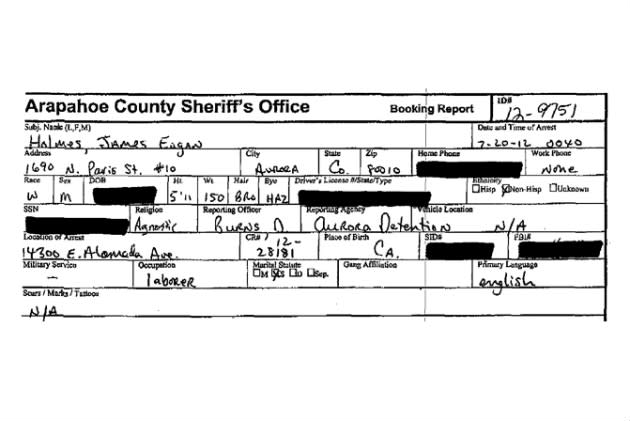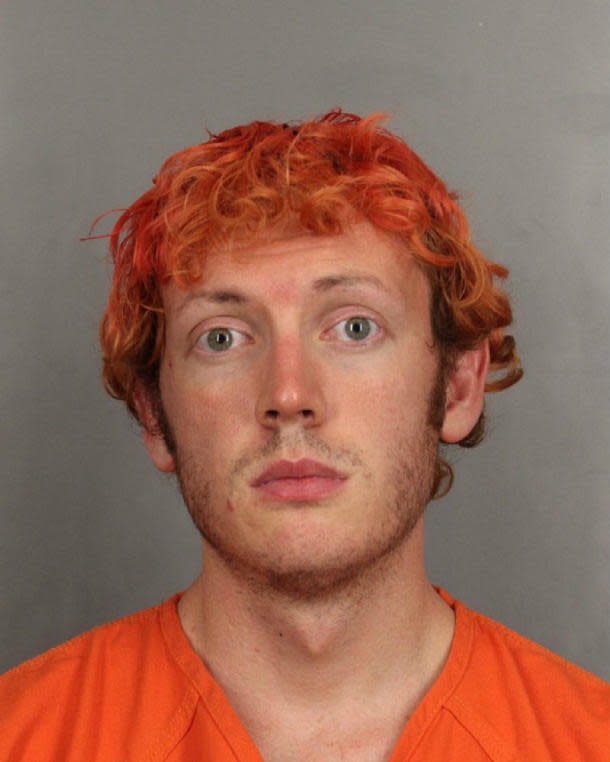 The Lookout
The LookoutJudge accused of creating ‘unusual shroud of secrecy’ in movie theater shooting case

The former grad student charged in last month's deadly shooting rampage at a Colorado movie theater gave his religion as "agnostic" and his occupation as "laborer" when he was booked into jail, according to a document released to Yahoo News this week.
The Arapahoe County Sheriff's Office booking report provides few other details about James Eagan Holmes or his motive for allegedly opening fire during a midnight showing of "The Dark Knight Rises." Twelve people were killed and 58 wounded.
The 24-year-old suspected gunman gave jailers his mother's name as an emergency contact.
The redacted two-page report was obtained by Yahoo News under a Colorado public records request. A request for additional records was denied.
[Related: How the media should cover mass shootings, and why it can't]
"In weighing the public interests versus the private interests, the public interest would not be served by disclosing additional records," Arapahoe County Sheriff J. Grayson Robinson wrote in a response to Yahoo News.
"Mr. Holmes could potentially be significantly impacted by the release of his records and any corresponding publicity," he continued.
Robinson said part of his decision was based on a pretrial gag order issued by Chief District Judge William Sylvester.
The judge's order to seal all records related to Holmes' arrest will be debated in court Thursday. Several media organizations have asked Sylvester to scale back his order barring the release of search warrants, inventories of evidence and other records publicly available in criminal cases.

The gag order has prohibited the University of Colorado from releasing public records related to the suspect's time there as a Ph.D. neuroscience student. The Aurora Police Department has also stopped answering routine questions about the shooting.
An editorial by the Denver Post says Sylvester's order has "imposed an unusual shroud of secrecy on the case" and goes beyond protecting the defendant's right to a fair trial.
"Barriers against secrecy are important in part because of the heightened public interest and the widespread desire for justice," the paper wrote.
Releasing basic information could help the community better understand how the tragedy took place, the editorial stated.
"People often follow such stories because they're responsible citizens, not because they are voyeurs out for cheap thrills," the Post wrote.
Court officials said Holmes is expected to attend Thursday's hearing, according to the Associated Press.
